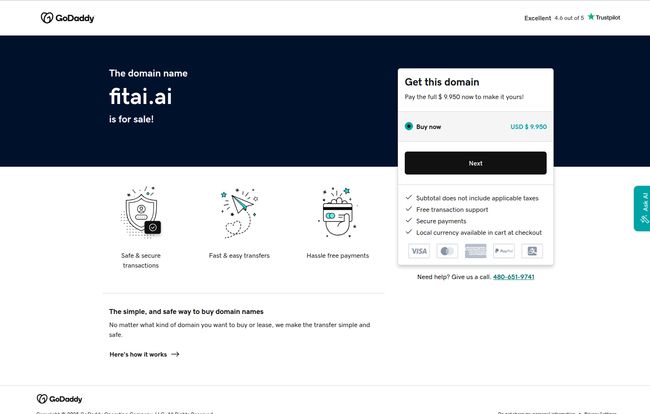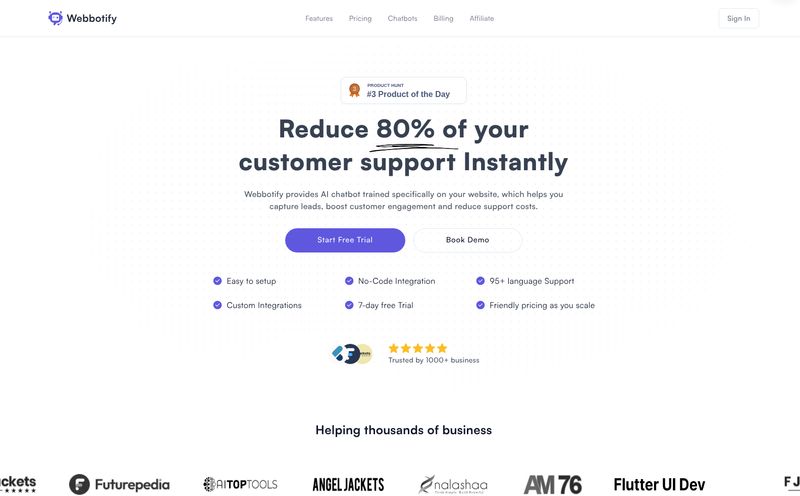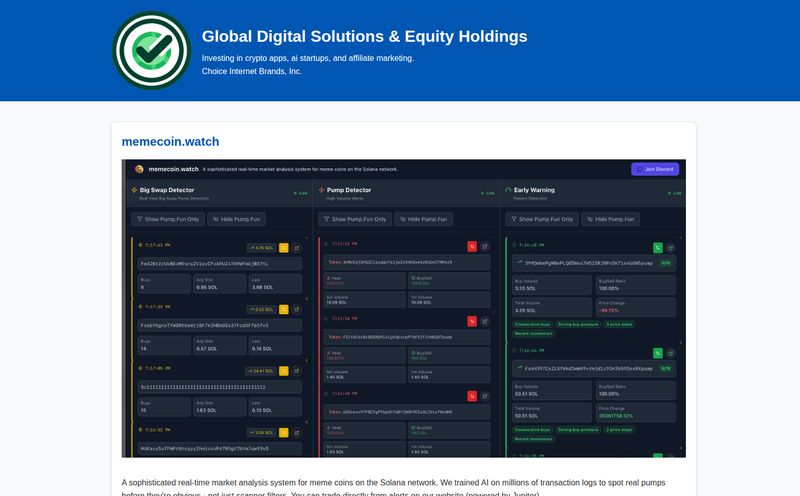I’ve seen a lot of tech fads come and go. Remember when every app was trying to be the “Uber for X”? Yeah, good times. But the current wave of generative AI feels… different. It’s sticking. From writing code to creating art, it’s seeping into every corner of our lives. And the health and fitness space is no exception. So when I heard about FitAI, an app promising to be a personal AI nutrition coach powered by ChatGPT, my interest was definitely piqued.
The concept is brilliant. Truly. An app that lets you log your food just by snapping a picture or typing a quick note, then gives you personalized, conversational advice to hit your goals. It sounds like the perfect evolution from the tedious, manual-entry calorie counters we’ve all tried (and abandoned) at some point. But as I started digging into FitAI, I stumbled upon a little detail that turned this from a simple app review into a much more interesting story. A classic startup cautionary tale, if you will.
So, What Exactly Is FitAI Supposed to Be?
Let's start with the sales pitch, the dream. FitAI is designed to be your pocket nutritionist. Forget scrolling through endless databases to find the exact brand of Greek yogurt you ate. The idea is simple and elegant: you interact with it like you would a person.
- Log food with a photo: Just snap a picture of your plate. The AI analyzes the image and logs the items for you.
- Log food with text: Type something like, “I had a chicken salad sandwich and an apple for lunch,” and the AI parses it.
- Get personalized insights: This is the cool part. Instead of just showing you a pie chart of macros, FitAI is meant to give you actionable advice. It might say, “I noticed you’re a bit low on protein today. Maybe consider a protein-rich snack this afternoon to help with your muscle recovery goals.”
- AI Trainer: You can literally chat with the AI to set goals, ask questions about nutrition, and adjust your plan on the fly.
It’s the convenience of modern tech applied to one of the most annoying parts of getting healthy. It aims to remove the friction. I’ve worked with clients who would pay a fortune for a tool that makes nutrition tracking this effortless. In theory, it’s a home run.

Visit FitAI
The Magic of Generative AI in Your Pocket
What sets this concept apart from, say, MyFitnessPal, is the “generative” part of the AI. Older apps are basically just giant, searchable databases. They’re functional, but dumb. They can tell you what’s in your food, but they can’t really coach you. They don’t understand context, or nuance, or your personal struggles.
By using a model similar to ChatGPT, FitAI can understand natural language and generate human-like responses. This turns a data-entry tool into a companion. It’s the difference between a spreadsheet and a conversation. And that, my friends, is a game-changer for user retention. People don't stick with spreadsheets. They might stick with a coach who makes their life easier.
The Elephant in the Room: That fitai.ai Domain
Okay, so I was pretty sold on the idea. I was ready to see where I could download the beta. I went to the most logical place: `fitai.ai`. And what did I find? Not a slick landing page for a revolutionary app. I found a GoDaddy premium domain listing.
The domain name fitai.ai is for sale!
Buy now: USD $9,950
Oof. That’s a gut punch. For an SEO and branding guy like me, this is a cardinal sin. You have this killer, brandable name—short, memorable, and riding the .ai domain trend—and you don’t own the digital real estate for it? It’s like building a beautiful house but forgetting to buy the land it sits on. Now, someone else owns the prime location, and they want nearly ten grand for it.
This raises so many questions. Is the app still in a stealth development phase under a different name? Did the original developers abandon the project? Or did they just make a massive, rookie mistake? Whatever the reason, it’s a stark reminder of how critical it is to secure your brand identity online from day one. In the gold rush for .ai domains, you can't afford to hesitate.
The Good, The Bad, and The AI-Generated Meal Plan
Let's set aside the domain drama for a second and look at the pros and cons of the concept itself, because it's still worth discussing.
The Upside is Huge
The convenience is the main selling point. The easier it is to track something, the more likely you are to do it consistently. And consistency is everything in health and fitness. The personalized insights could genuinely help people break through plateaus and understand their eating habits better than ever before. For someone who isn’t a nutrition expert, having an AI guide could be incredibly empowering, helping them reach their health goals, wether it's weight loss or muscle gain, much faster.
But There Are Potential Hiccups
First, accuracy. AI food recognition is getting better, but it's not perfect. It can mistake parmesan for breadcrumbs, or guess the portion size wildly wrong. This reliance on the AI's guess could lead to inaccurate tracking. Second, I've always felt we're at risk of outsourcing too much of our basic life knowledge. If you rely entirely on an app to tell you what to eat, are you ever truly learning about nutrition? There's a risk of becoming dependent, losing the very intuition the app is supposed to help build.
And of course, there's the cost. An app this sophisticated won't be free. You can bet your last dollar it would operate on a subscription model, and that’s a barrier for some.
So, Can You Actually Use FitAI? And What's the Cost?
This is the tricky part. As of right now, with the primary domain up for sale, the app's public availability is a mystery. It might exist under a less catchy name, or it might not exist at all. It could just be a fantastic concept that someone floated and then walked away from.
As for pricing, we can only speculate. Looking at competitors in the premium health app market, a subscription would likely fall somewhere in the $15 to $30 per month range, or perhaps $70 to $120 for an annual plan. But without an official product, that's just an educated guess.
A Bigger Lesson for Every Startup
The story of FitAI—the brilliant concept and the fumbled domain—is a powerful lesson for anyone in the tech space. Your domain name isn't an afterthought; it's your digital address, your brand's foundation. In today's market, especially with hot TLDs like .ai, securing your name is step zero. Before you write a single line of code, before you design a logo, you buy the domain. It’s one of the best investments you can make in your brand’s future.
Seeing `fitai.ai` for sale feels like finding a ghost ship. A vessel with all the potential for a great voyage, just floating aimlessly without a captain.
My Final Take
I genuinely love the idea of FitAI. It represents the direction I believe personal health tech should be heading: smarter, more intuitive, and more human. It’s a fantastic application of generative AI that could help millions of people.
But the execution, or lack thereof, is a problem. The domain issue casts a long shadow over the project. I sincerely hope that whoever is behind this concept either secures the domain or that an ambitious entrepreneur buys it and brings this vision to life. The potential is there. It’s just waiting for someone to claim it.
Frequently Asked Questions About FitAI
- What is FitAI?
- FitAI is a concept for an AI-powered nutrition tracking app that uses generative AI, like ChatGPT, to allow users to log food via photos or text and receive personalized coaching and insights to reach their health goals.
- How would FitAI log food?
- The app is designed to recognize food from pictures you take with your phone or understand descriptions you type in natural language, like "I had a bowl of oatmeal with blueberries."
- Is FitAI free to use?
- While there's no official app or pricing, a tool with these advanced AI features would almost certainly require a paid subscription for full access. Pricing details are currently unavailable.
- Why is the fitai.ai domain for sale?
- That's the big question! It could be that the original developers never purchased it, or they abandoned the project. Currently, it's listed on GoDaddy as a premium domain for sale, which is a major branding hurdle for the app.
- Is AI good for nutrition tracking?
- It has huge potential for convenience and personalization. However, users should be aware of potential inaccuracies in food recognition and portion sizing. It's a powerful tool, but shouldn't completely replace one's own nutritional knowledge.
- Can I download FitAI today?
- Currently, there is no clear way to download an official FitAI app, especially given that its most logical domain name (`fitai.ai`) is for sale and doesn't lead to a product website.
Reference and Sources
- GoDaddy Listing for fitai.ai (Link active at the time of writing)
- OpenAI's ChatGPT - The technology powering concepts like FitAI.
- An article on the rise of .ai domains for context on the domain market, such as this one from Name.com.



